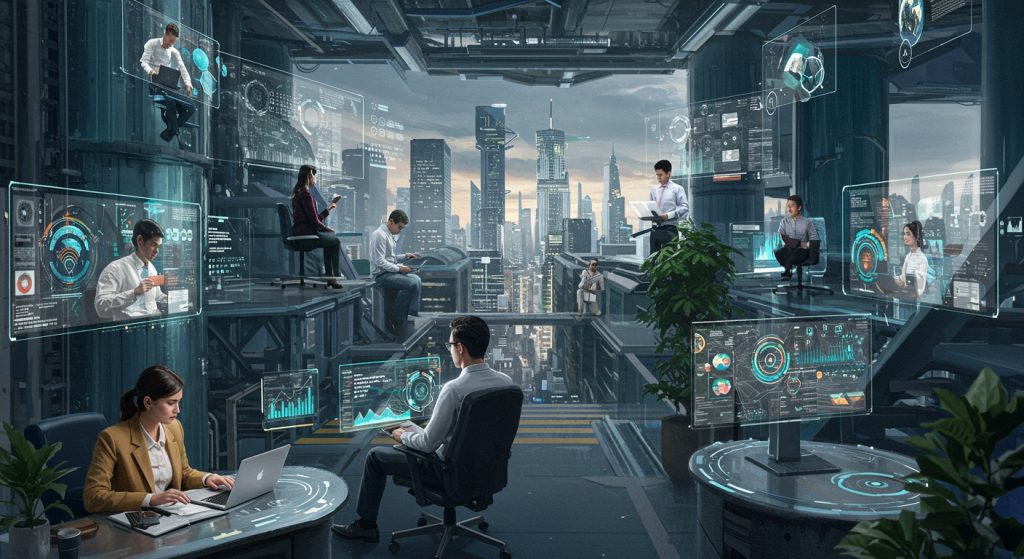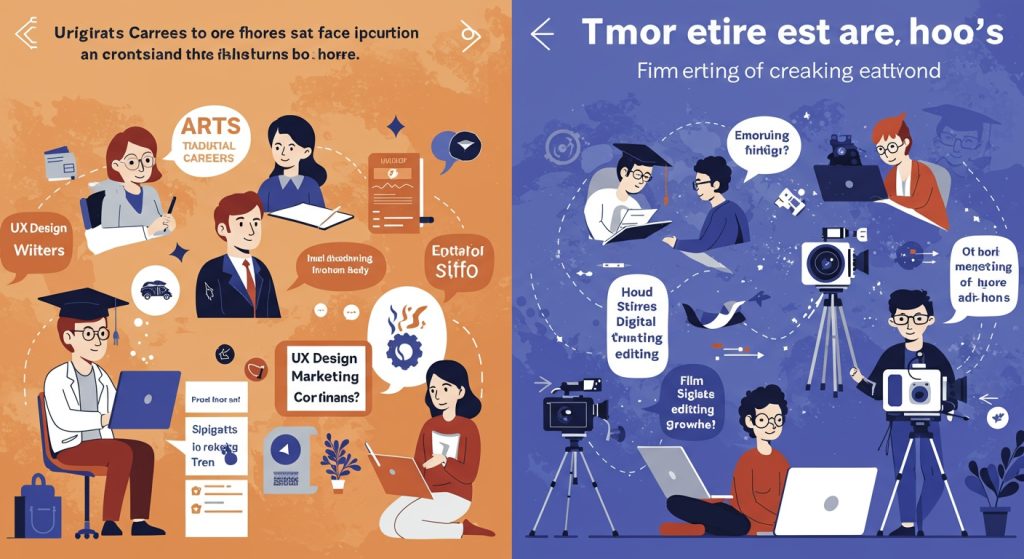A BSc in Computer Science: it’s more than just coding. We’re at the cusp of unprecedented technological advancement. AI, cloud computing. Cybersecurity are not just buzzwords; they are rapidly evolving industries craving skilled professionals. This program roadmap illuminates diverse career paths beyond traditional software development. Explore data science where you’ll extract insights from massive datasets, or delve into the intricacies of network architecture. We’ll unpack the pathways to becoming machine learning engineers, cybersecurity specialists. Even tech entrepreneurs. Discover how the core principles of your degree translate into impactful roles, shaping the future of technology and innovation.

Software Development: The Core Path
Software development remains a cornerstone career path for Computer Science graduates. It involves designing, coding, testing. Deploying software applications. This path is diverse, offering specializations in various areas.
Web Development
Web development focuses on creating websites and web applications. It’s broadly divided into:
- Front-end Development: Deals with the user interface (UI) and user experience (UX). Technologies include HTML, CSS, JavaScript. Frameworks like React, Angular. Vue. Js.
- Back-end Development: Handles the server-side logic, databases. APIs. Common languages and frameworks include Python (Django, Flask), Java (Spring Boot), Node. Js. Ruby on Rails.
- Full-Stack Development: Encompasses both front-end and back-end responsibilities, requiring a broad understanding of web technologies.
Real-world application: E-commerce websites like Amazon, social media platforms like Facebook. Online banking systems are all products of web development.
Mobile App Development
Mobile app developers create applications for smartphones and tablets. The two primary platforms are:
- iOS Development: Uses Swift or Objective-C and the Xcode IDE.
- Android Development: Uses Java or Kotlin and the Android Studio IDE.
- Cross-Platform Development: Allows developers to write code once and deploy it on multiple platforms using frameworks like React Native, Flutter. Xamarin.
Real-world application: Mobile banking apps, social media apps like Instagram. Gaming apps like Candy Crush are all examples of mobile applications.
Desktop Application Development
Desktop application development involves creating software that runs directly on a computer’s operating system. Languages like C++, C#, Java. Python (with libraries like PyQt or Tkinter) are commonly used.
Real-world application: Microsoft Office suite, Adobe Photoshop. Video editing software like DaVinci Resolve are desktop applications.
Game Development
Game development is a specialized area that combines programming, art. Design. Game developers use languages like C++, C#. Lua, along with game engines like Unity and Unreal Engine.
Real-world application: Popular video games like Fortnite, Call of Duty. Grand Theft Auto are products of game development.
Data Science and Analytics: Extracting Insights
Data science is a rapidly growing field focused on extracting knowledge and insights from data. Computer Science graduates are well-equipped to pursue careers in this area.
Data Analyst
Data analysts collect, clean. Examine data to identify trends and patterns. They use tools like SQL, Python (with libraries like Pandas and NumPy). Statistical software like R. They also visualize data using tools like Tableau or Power BI.
Real-world application: Analyzing sales data to identify top-selling products, predicting customer churn. Optimizing marketing campaigns are common tasks for data analysts.
Data Scientist
Data scientists build predictive models using machine learning algorithms. They have a strong understanding of statistics, mathematics. Computer science. Key technologies include Python (with libraries like Scikit-learn and TensorFlow), R. Cloud computing platforms like AWS and Azure.
Real-world application: Developing fraud detection systems, building recommendation engines (like those used by Netflix). Predicting stock prices are examples of data science applications.
Machine Learning Engineer
Machine learning engineers are responsible for deploying and maintaining machine learning models in production. They work closely with data scientists and software engineers to ensure that models are scalable and reliable. They often use technologies like Docker, Kubernetes. Cloud computing platforms.
Real-world application: Deploying a model that automatically detects spam emails, building a chatbot that can answer customer questions. Creating a system that can recognize objects in images are tasks for machine learning engineers.
Cybersecurity: Protecting Digital Assets
Cybersecurity is a critical field that focuses on protecting computer systems and networks from cyber threats. The demand for cybersecurity professionals is high, making it a promising career path for Computer Science graduates.
Security Analyst
Security analysts monitor networks for suspicious activity, investigate security incidents. Implement security measures. They use tools like intrusion detection systems (IDS), security data and event management (SIEM) systems. Vulnerability scanners.
Real-world application: Monitoring network traffic for malicious activity, responding to data breaches. Conducting security audits are common tasks for security analysts.
Penetration Tester (Ethical Hacker)
Penetration testers simulate cyberattacks to identify vulnerabilities in systems and networks. They use various hacking tools and techniques to test security defenses. The goal is to find weaknesses before malicious actors do.
Real-world application: Testing the security of a web application, simulating a phishing attack to test employee awareness. Identifying vulnerabilities in a network infrastructure are examples of penetration testing activities.
Security Engineer
Security engineers design, implement. Manage security systems. They have a deep understanding of security technologies and best practices. They work on areas like network security, application security. Cloud security.
Real-world application: Designing a secure network architecture, implementing firewalls and intrusion detection systems. Developing security policies are tasks for security engineers.
Cloud Computing: Powering the Future
Cloud computing has revolutionized the way businesses operate. Computer Science graduates with cloud skills are in high demand.
Cloud Engineer
Cloud engineers are responsible for designing, deploying. Managing cloud infrastructure. They work with cloud platforms like AWS, Azure. Google Cloud. Key skills include virtualization, networking. Automation.
Real-world application: Migrating applications to the cloud, managing virtual machines. Configuring network security groups are tasks for cloud engineers.
DevOps Engineer
DevOps engineers bridge the gap between development and operations. They automate the software development lifecycle, enabling faster and more reliable deployments. They use tools like Docker, Kubernetes, Jenkins. Ansible.
Real-world application: Automating the build and deployment process, managing containerized applications. Monitoring system performance are tasks for DevOps engineers.
Cloud Architect
Cloud architects design and implement cloud solutions that meet business requirements. They have a deep understanding of cloud technologies and architectural patterns. They work with stakeholders to define cloud strategies and roadmaps.
Real-world application: Designing a cloud-based data warehouse, architecting a microservices application. Developing a disaster recovery plan for a cloud environment are examples of cloud architecture activities.
Artificial Intelligence and Robotics: The Next Frontier
Artificial intelligence (AI) and robotics are rapidly evolving fields with tremendous potential. Computer Science graduates can pursue exciting careers in these areas.
AI Engineer
AI engineers develop and deploy AI models and applications. They use machine learning algorithms, deep learning frameworks (like TensorFlow and PyTorch). Natural language processing (NLP) techniques.
Real-world application: Building a chatbot, developing an image recognition system. Creating a personalized recommendation engine are examples of AI engineering projects.
Robotics Engineer
Robotics engineers design, build. Program robots. They combine mechanical engineering, electrical engineering. Computer science principles. They use programming languages like C++, Python. ROS (Robot Operating System).
Real-world application: Developing autonomous vehicles, designing industrial robots. Creating assistive robots for healthcare are examples of robotics engineering applications.
Database Administration: Managing data
Database administrators (DBAs) are responsible for managing and maintaining databases, ensuring data integrity, security. Availability.
Database Administrator
DBAs install, configure. Maintain database systems. They monitor database performance, troubleshoot issues. Implement security measures. They use database management systems (DBMS) like MySQL, Oracle. SQL Server.
Real-world application: Ensuring that a database is backed up regularly, optimizing database performance. Implementing security policies to protect sensitive data are tasks for DBAs.
Emerging Technologies and Specializations
The field of Computer Science is constantly evolving, with new technologies and specializations emerging regularly. Computer Science graduates should stay up-to-date with the latest trends and consider specializing in these areas.
Blockchain Developer
Blockchain developers create and maintain blockchain applications. They use languages like Solidity (for Ethereum) and frameworks like Hyperledger Fabric. They need a strong understanding of cryptography and distributed systems.
Real-world application: Developing decentralized applications (dApps), creating cryptocurrency wallets. Building supply chain tracking systems are examples of blockchain development projects.
Internet of Things (IoT) Engineer
IoT engineers design and develop devices and systems that connect to the internet. They work with embedded systems, sensors. Wireless communication protocols. They use programming languages like C, C++. Python.
Real-world application: Developing smart home devices, creating industrial automation systems. Building environmental monitoring systems are examples of IoT engineering applications.
Augmented Reality (AR) and Virtual Reality (VR) Developer
AR/VR developers create immersive experiences using augmented reality and virtual reality technologies. They use game engines like Unity and Unreal Engine, along with programming languages like C
and C++.
Real-world application: Developing AR games, creating VR training simulations. Building AR applications for retail are examples of AR/VR development projects.
Non-Technical Career Paths for Computer Science Graduates
While many Computer Science graduates pursue technical roles, there are also several non-technical career paths that leverage their analytical and problem-solving skills.
Project Manager
Project managers plan, execute. Close projects. They use project management methodologies like Agile and Waterfall. They need strong communication, leadership. Organizational skills.
Real-world application: Managing the development of a new software application, leading a team of developers. Ensuring that projects are completed on time and within budget are tasks for project managers.
Technical Writer
Technical writers create documentation for software, hardware. Other technical products. They need strong writing and communication skills, as well as a solid understanding of technology. They produce user manuals, API documentation. Training materials.
Real-world application: Writing user guides for software applications, creating API documentation for developers. Developing training materials for new employees are tasks for technical writers.
Business Analyst
Business analysts review business processes and identify opportunities for improvement. They work with stakeholders to gather requirements and develop solutions. They need strong analytical, communication. Problem-solving skills.
Real-world application: Analyzing business processes to identify inefficiencies, gathering requirements for a new software system. Developing solutions to improve customer satisfaction are tasks for business analysts.
Career Guidance and Further Education
Navigating the diverse career paths after a BSc in Computer Science can be daunting. Seeking career guidance from mentors, career counselors, or alumni networks can provide valuable insights and support. Consider further education, such as a Master’s degree or specialized certifications, to enhance your skills and career prospects. Networking with professionals in your desired field can also open doors to opportunities and provide valuable career guidance.
Comparing Key Technologies and Frameworks
| Technology/Framework | Description | Use Cases | Pros | Cons |
|---|---|---|---|---|
| React | JavaScript library for building user interfaces | Single-page applications, interactive UIs | Reusable components, virtual DOM for performance, large community | Can be complex for large applications, requires knowledge of JavaScript |
| Angular | Comprehensive framework for building web applications | Large-scale enterprise applications | Well-structured, strong support for testing, TypeScript for type safety | Steeper learning curve, can be verbose |
| Vue. Js | Progressive framework for building user interfaces | Single-page applications, interactive components | Easy to learn, flexible, good performance | Smaller community than React or Angular |
| Python (Django) | High-level Python web framework | Complex web applications, APIs | Rapid development, security features, ORM for database interaction | Can be slower than other frameworks for high-performance applications |
| Java (Spring Boot) | Java framework for building enterprise applications | Microservices, APIs, web applications | Scalable, robust, large ecosystem | Can be verbose, requires knowledge of Java |
| TensorFlow | Open-source machine learning framework | Image recognition, natural language processing, predictive modeling | Large community, strong support for deep learning, good for production | Steeper learning curve, can be complex for beginners |
| PyTorch | Open-source machine learning framework | Research, rapid prototyping, deep learning | Dynamic computation graph, easy to debug, good for research | Smaller community than TensorFlow, less mature for production |
Conclusion
Let’s view this BSc Computer Science degree not as a destination. As a launchpad. We’ve explored diverse avenues, from AI and cybersecurity to game development and data science. The key takeaway is adaptability. The tech landscape is in constant flux; think about the rapid rise of generative AI like ChatGPT and its impact on coding practices. To truly thrive, continuous learning is paramount. My personal experience taught me that focusing on niche skills, like cloud security for DevOps, can significantly boost your career trajectory. Now, the implementation: actively build your portfolio. Contribute to open-source projects, create personal coding projects. Network relentlessly. Don’t underestimate the power of soft skills – communication and collaboration are crucial in any tech role. Success will be measured not just by your technical prowess. Also by your ability to adapt, learn. Contribute effectively to a team. Go forth and build the future!
More Articles
Top Computer Science Courses for AI and Machine Learning in 2025
Future Salary Trends: What Will Be the Highest Paying Jobs?
Science Stream Career Paths: What Options Do You Really Have?
Exciting Career Options After 12th: Beyond Engineering and Medicine?
FAQs
Okay, so I’m getting a BSc in Computer Science. Everyone thinks I’ll just be a programmer. Are there really other options?
Absolutely! While programming is a solid choice, a Computer Science degree is like a superpower unlocking a ton of different paths. Think of it as the foundation – you can build a skyscraper, a cozy cottage, or even a spaceship on top of it. We’re talking data science, cybersecurity, UX/UI design, project management. Even roles in fields like finance or healthcare! Your problem-solving skills are highly valuable everywhere.
Data Science keeps popping up. What exactly is that. Is it different from just being a ‘data analyst’?
Good question! Data Science is using computer science skills (programming, algorithms, statistics) to extract meaningful insights from large datasets. Think predicting trends, understanding customer behavior, or improving medical diagnoses. A data analyst typically focuses on interpreting existing data and creating reports, whereas a data scientist usually builds the models and algorithms that generate those insights. There’s definitely overlap. Data scientists often have a deeper understanding of the underlying mathematical and computational principles.
Cybersecurity sounds cool! Is that just about hacking?
Nope! Hacking is just a (often illegal!) part of it. Cybersecurity is much broader and about protecting computer systems and networks from threats. Think of it as digital security. You could be involved in penetration testing (ethically hacking to find vulnerabilities), developing security software, analyzing security breaches, or even creating security policies. It’s a constantly evolving field, which makes it super interesting!
UX/UI design? I thought that was more of an ‘art’ thing. How does Computer Science fit in?
While there’s definitely a creative element, UX/UI design relies heavily on understanding how users interact with technology. A computer science background gives you a solid understanding of the technical limitations and possibilities, which is crucial. You’ll be designing user interfaces (UI) and ensuring they’re intuitive and user-friendly (UX). You’ll need to interpret things like accessibility, usability testing. Data architecture – all of which benefit from a technical foundation.
What if I’m not super passionate about coding all day, every day? Are there options that are less code-intensive?
Totally! Project management is a great option. With a Computer Science degree, you interpret the technical side of software development or IT projects, allowing you to effectively manage teams, timelines. Budgets. You’ll be more of a coordinator and facilitator, ensuring projects run smoothly from start to finish. There are also roles in technical sales or consulting that require strong communication and problem-solving skills, with less direct coding.
Okay, all this sounds interesting. How do I actually get these jobs? Do I need more schooling?
That depends on the specific role and your experience. Internships are HUGE! They’re the best way to explore different areas and gain practical experience. Building a portfolio of projects (even personal ones!) can also showcase your skills. Some roles, like data science, might benefit from a Master’s degree. Many others are accessible with a strong Bachelor’s and relevant experience. Networking is also key – attend industry events, connect with people on LinkedIn. Don’t be afraid to ask for informational interviews.
So, the world is my oyster, huh? What’s the most vital thing to remember when choosing a path?
Ultimately, it’s about finding something that you genuinely enjoy and that aligns with your strengths and interests. Don’t just chase the highest salary or the trendiest job title. Explore different areas, try things out. Don’t be afraid to pivot if something isn’t a good fit. Your Computer Science degree gives you the flexibility to adapt and evolve throughout your career!



